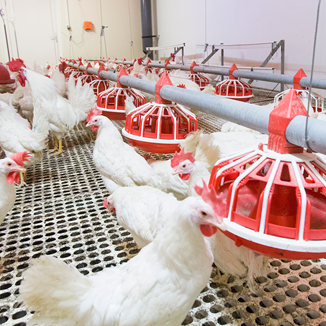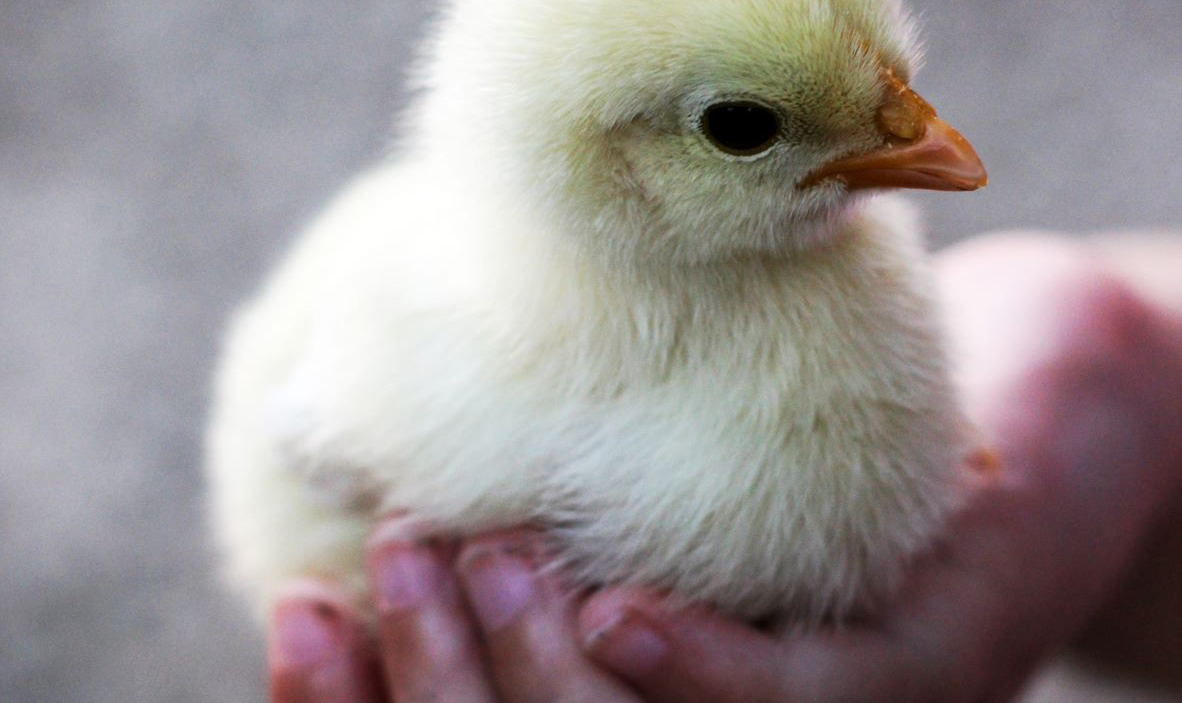- Home
- contract-research-organisation
- studies-poultry
Animal models, expertise, diagnostics and training
Our solutions for studying poultry health

Effective biosafety measures and infectious disease control are essential for successful poultry farming. Despite advancements in vaccines and a growing understanding of pathogen-host interactions, infectious diseases continue to impact the industry—leading to significant economic losses and animal suffering.
At Royal GD, we are at the forefront of combatting viruses, bacteria, and parasites that threaten poultry health. With decades of expertise in diagnostics, research, and vaccine development, we provide the knowledge, tools, and facilities to support your development of innovative poultry health solutions.

Studies and trials
Our multidisciplinary teams conduct poultry health research and studies in full compliance with international veterinary standards. We support all phases of development, managing projects from obtaining regulatory approvals to delivering final reports.
We offer the following study types:
Clinical field studies
Royal GD has a strong network of farmers and veterinarians in the Netherlands and a deep understanding of farm disease status through our annual Animal Health Surveillance System. This allows us to conduct clinical field studies in real-world conditions. Additionally, as part of the GD Group, we collaborate with veterinary laboratories across multiple countries, enabling multi-country studies.
Studies on-site
At our BSL-2 facility, we operate more than 70 isolators for conducting controlled poultry studies under strict biosecurity conditions. Our state-of-the-art isolator hall, essential for poultry health research, is equipped with computerized monitoring systems, ensuring precision in study conditions. For larger studies, we also have clean floor pens and an in-house flock of SPF layers and broilers. Combined with our extensive diagnostic testing capabilities, we provide comprehensive research solutions. Discover our facilities.
Challenge studies
In vivo
Our team specializes in challenge studies designed to evaluate interventions (for example assess the efficacy of live and/or inactivated vaccines) and disease resistance under controlled conditions. Models which are available at GD include:
- Low pathogenic Avian influenza (H5, H9)
- Coccidiosis
- Colibacillosis (Egg Peritonitis Syndrome)
- Egg Drop Syndrome
- Enterococcus cecorum
- Fowl pox
- Infectious Bronchitis (M41, QX, Q1, VAR2, 4/91)
- Infectious Bursal Disease (Gumboro)
- Infectious laryngotracheitis
- Mycoplasma Synoviae and Mycoplasma Gallisepticum
- Newcastle Disease (mesogenic as well as velogenic)
- Necrotic enteritis (layers)
- Turkey Rhino-Tracheitis
As leaders in poultry disease research, we continuously develop new models, using both recent field isolates and client-provided strains. Our current new models under development include:
- Highly pathogenic Avian influenza (H5N1)
- Coryza
- Reovirus
- Marek’s disease
In vitro
Besides in vivo models GD also offers in vitro models for intestinal infections in poultry with viruses, bacteria or parasites. Our 3D organoids originate from intestinal villi isolated from 18-day-old chicken embryos. The model allows for studying immune responses and assessing gut compatibility and efficacy of feed additives. Click here for more information about our in vitro models.
In ovo
GD has the facilities and expertise to perform in ovo studies, such as testing virulence and embryolethality. Contact us for more information about these types of studies.
Our experts

Robert Jan Molenaar, DVM, FCRPath
"As a veterinarian with a PhD in Veterinary Immunology, I specialize in the study of immune responses to infectious diseases in poultry. My focus includes avian immune responses, immunization strategies, and disease prevention in poultry. I work closely with both the research community and industry to advance our understanding of poultry health." Read more

Prof. Sjaak de Wit, DVM, PhD, DipECPVS
"As a fellow of the Royal College of Pathologists in London, I specialize in avian pathology. My expertise includes research on Salmonella, Influenza, and Infectious Bronchitis Virus (IBV), as well as overseeing mink disease monitoring in the Netherlands." Read more

Anneke Feberwee, DVM, PhD, EBVS®
"As an immunologist and senior researcher, I oversee the quality and accreditation of serological tests for poultry pathogens. My expertise includes test development, applied research, and on-site consultancy for farms, hatcheries, and integrators. I hold a PhD in diagnosis and transmission of IBV." Read more

Christiaan ter Veen, DVM, MAHM
"I am a recognized Specialist in Poultry Veterinary Science appointed by the European College of Poultry Veterinary Science. I have been a part of Royal GD since 1996. My work focuses on diagnostic field research, disease control, and avian mycoplasmas." Read more
In vitro and in vivo models for Coccidiosis
Coccidiosis is a widespread parasitic disease caused by Eimeria species, affecting poultry of all ages but particularly young chicks. It spreads through contaminated feed, water, or contact with infected birds, leading to:
- Diarrhea & weight loss

- Decreased appetite & egg production
- Higher mortality rates
Effective Coccidiosis prevention and control relies on:
- Hygiene & biosecurity
- Balanced nutrition & clean water
- Anticoccidial drugs & vaccines
At Royal GD, we have a long-standing track record in studying Coccidiosis and its causative parasites. Our expertise includes:
- Diagnostic tools for detecting infection
- In vitro and in vivo models to assess vaccine and treatment efficacy
- Training & consultancy on disease management strategies
Vaccine development with the support of GD
"The Contract Research team at Royal GD supports us in setting up and executing research projects for vaccine registration in the European Union. Their scientific expertise helps us make informed R&D and marketing decisions."

Scientific posters
We actively contribute to scientific advancements by presenting research at global veterinary and poultry health congresses. Explore our latest studies: